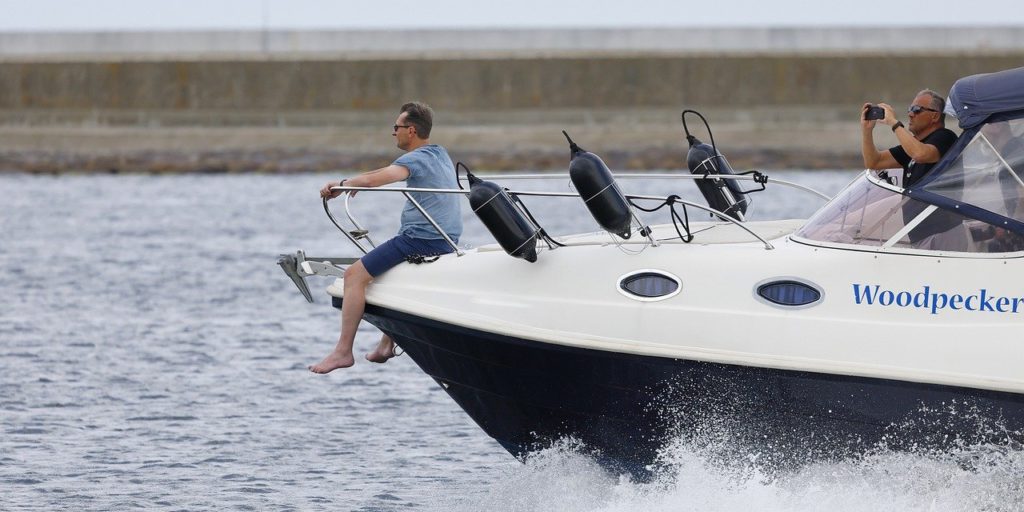- Optional coverage is the wrong way to cut insurance rates - April 22, 2024
- A primer on successfully claiming LTD benefits in Ontario - March 18, 2024
- Clear your sidewalks after a snowfall or you could face liability - February 7, 2024
By Paul Russell, LegalMatters Staff • Few things are more relaxing than spending time out on the water during the summer. But if you are hurt due to the actions of others, you may be entitled to damages, advises Toronto personal injury lawyer Joshua Goldberg.
“While there are some similarities between the legal options available to those injured in a boating accident versus an auto accident, the biggest difference is how you can claim damages,” says Goldberg, principal of Joshua Goldberg Law.
“If you are injured on the water, you cannot claim no-fault benefits under Ontario’s Statutory Accidents Benefits Schedule as with an auto accident. Instead, you have to sue the person who is at fault, and hope they have insurance or assets.
Injury claims capped by Marine Liability Act
He explained that under the Marine Liability Act, the total award for an accident causing loss of life or personal injury is $1-million, regardless of the number of people making claims.
“People also have to remember there is a limitation period of two years to file a claim from the date of the accident, though exceptional circumstances may permit a claim to be brought outside that window,” he said.
Goldberg notes there are various causes for the accidents that can occur on the water. These include:
- injuries suffered by those water skiing or tubing;
- collisions with another watercraft;
- careless operation of a watercraft;
- equipment failure;
- striking an object under the water;
- speeding; or
- the actions of an unlicensed or inexperienced boat operator.
Always wear a life jacket
According to information from the Red Cross, “approximately 525 Canadians die needlessly in unintentional water-related fatalities” with 57 per cent occurring in summer months with males age 15 to 44 are most likely to be involved in these accidents.
The Red Cross adds that 75 per cent of boating deaths occurred during recreational activities such as fishing, powerboating and canoeing and that up to 85 per cent of boating-related fatalities could have been prevented by wearing a personal flotation device. Alcohol was present or suspected in at least 43 per cent of deaths among Canadians over 15 years old, the report adds.
- LTD claims sure to rise for teachers, police after COVID
- Mental-health LTD claims sure to spike due to COVID
- Advice on slip and falls, COVID, accidents, holiday parties and pets
“Anyone operating a boat must ensure it is properly maintained and outfitted with safety features,” Goldberg says.
These include:
- life jackets or other personal flotation devices;
- a fire extinguisher;
- a visual-signalling device; and
- a sound-signalling device.
Boating accidents in the Toronto area
Goldberg says Toronto boaters usually go to Lake Ontario or the lakes in cottage country, adding “there have been tragic accidents in both.” In June, he notes a boat capsized after hitting a rock island breakwater near the Toronto Islands. Police pulled eight people from the water but two others died.
On Lake Joseph in the Muskoka area in 2019, two people died in a boat after it was hit by another one being driven by the wife of a celebrity businessman. She was charged with careless operation of a vessel under the Canada Shipping Act but acquitted two years later.
A media report notes that the boat she hit did not have any lights on since those onboard were stargazing. Its operator pleaded guilty to failing to exhibit a stern light on a power-driven vessel as required under the Canada Shipping Act.
Alcohol and boating is a dangerous mix
Goldberg notes that large boats that can cater to floating parties or “booze cruises” face increased legal liability.
“Anytime a boat owner is serving alcohol onboard, they have an extra burden to make sure everyone is safe and accounted for,” he says. “It is easy to lose track of people on these boats. If someone falls off, the crew may not even know.”
A media report notes that an intoxicated man fell off a cruise ship in the Toronto Harbour in 2015.
The man was socializing with friends and had been making inferences about jumping overboard, the report notes. When he started leaning over the upper deck railing, the security guards rushed over but he fell into the lake.
The report adds that although the man was a certified lifeguard and a strong swimmer, he drowned, with his body found four days later.
Crew failed to follow ‘prescribed procedures’
While a report from the Transportation Safety Board of Canada put the blame for the tragedy on the man himself due to his level of intoxication, the board also “found the response of the vessel’s crew was not co-ordinated and they failed to follow prescribed procedures.”
The man’s family is reportedly suing the boat’s owner, the media report adds.
“Alcohol consumption and boating is a dangerous mix, even if you are not the person driving the boat,” says Goldberg.
He recommends that people seek legal counsel if they are injured on the water due to the actions or inactions of others.
“Following a boating accident, the injured party will need compensation so they can recover and rebuild their lives,” he says.

